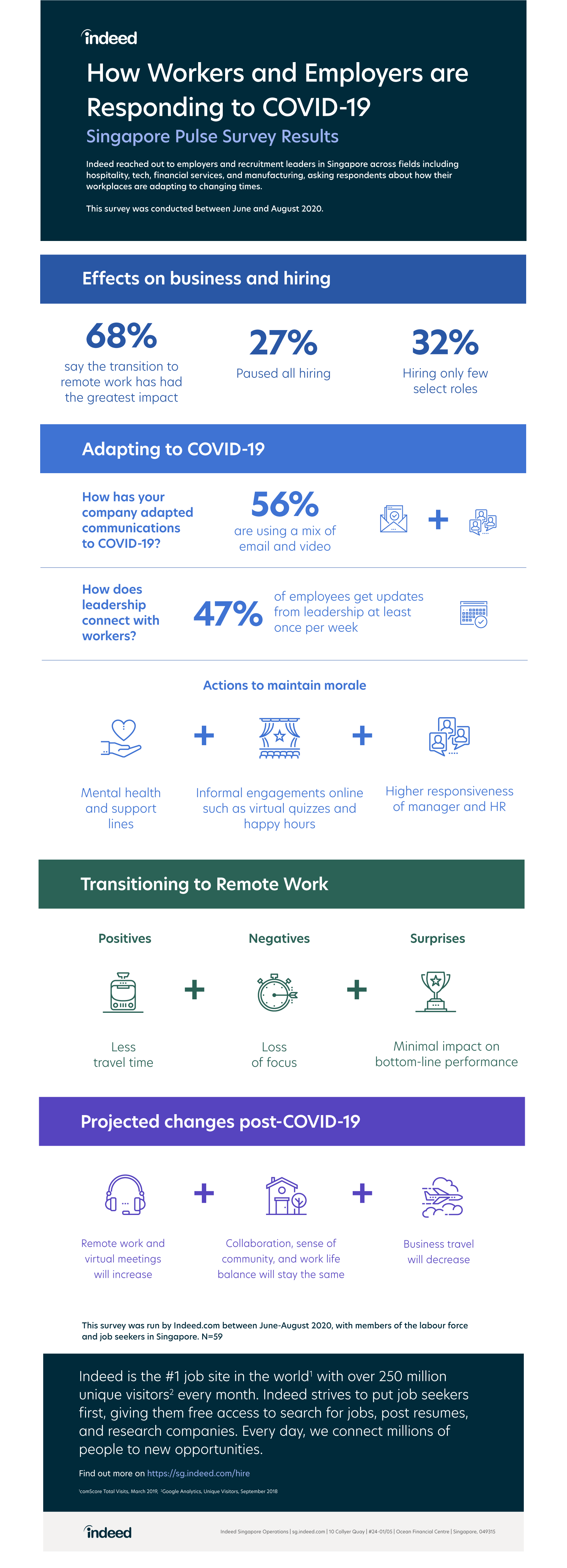Infographic: What employers and employees in Singapore had to say about Covid-19 induced workplace shifts

As companies continue to reel under the impact of COVID 19, Indeed reached out to employers and recruitment leaders across multiple sectors – including hospitality, technology, financial services and manufacturing to understand how their workplaces are adapting to changing times.
The transition of remote work has had positives for the workplace – it has reduced the time to travel, increased attention on mental health and informal online engagement. It has also led to higher responsiveness of managers and HR. On the flip side, it’s led to a loss of focus, manifested work-life issues and created challenges to community building.
Here are the key findings of the study:
Business impact
Business operations, for the most part, have continued despite COVID 19 induced restrictions. Most companies (68 percent) transitioned to a remote working model and have continued to have an impact. Only 27 percent say they paused all hiring. And 32 percent of the employers are hiring for select roles.
Employees are mostly hopeful. 53 percent of employees are optimistic, hopeful, and upbeat. 51 percent said they’re in the same job while 45% reported a change in the employment status.
Communications
Communicating regularly with employees has become critical during the pandemic. Email and video are dominating corporate communications. 56 percent of company communications have been driven by these mediums. “Leadership connects” have become critical during this crisis. A total of 47 percent of employees said they get updates from the leadership at least once per week.
Skilling
There’s an increased focus on skilling and reskilling employees during the pandemic. As a re-evaluation of the job market led to cutting down jobs, only business critical roles were immune. Job roles had to be re-defined and employees had to learn new skills. As employees save travel time, there’s a spike in online learning. Among the top skills that employees are learning – digital literacy, networking and analytics are some of the most popular skills.
Concern areas
While 69 percent of employees consider work from home to be a positive experience, 26 percent said they struggle to balance personal and professional lives. Major concerns were – financial including reduced wages, decreased paid time off and maintaining mental health and well-being. Blurring of work-life priorities has led to increased stress and social isolation.
As the work of work shifted to ensure business continuity, some of the shifts are going to be permanent – whether that’s access to remote work, virtual meetings and better work-life balance.
Find the complete findings in the infographic below
















